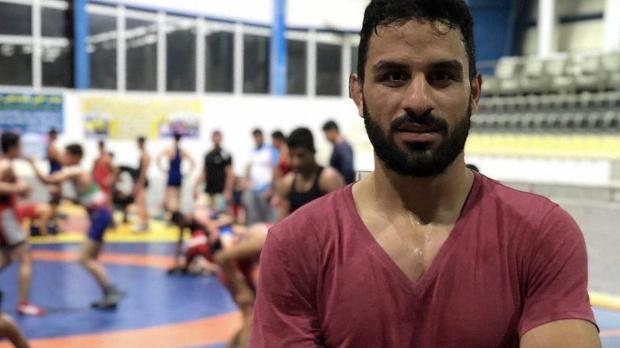As a wrestler faces execution in Iran, world sports groups galvanize
By Eric Nagourney
WASHINGTON – An Iranian wrestler accused of murder after taking part in anti-government protests two years ago may be executed soon, international sports groups fear as they intensify a last-ditch campaign for clemency.
“We really are at one minute to midnight,” Brendan Schwab, executive director of the World Players Association, which represents 85,000 professional athletes, said Tuesday (8).
The charges against the wrestler, Navid Afkari, 27, have drawn widespread scepticism in Iran and abroad, with many government critics saying he is being used as an example to silence dissent. In an audiotape smuggled from prison, Afkari says he was tortured until he falsely confessed to the crime.
The authorities say Afkari stabbed a water-utility worker amid the turmoil in the streets of his home city, Shiraz, which was a centre of anti-government protests that swept the country in 2018. He was convicted and given two death sentences.
The government has signalled in recent days that it was moving to carry out the sentence.
“The last that I heard from Navid’s mother was that all communication had been cut off,” said Sally Roberts, a former Olympic wrestler who helped bring Afkari’s case to world attention. “He has been moved to an undisclosed area.”
Hadi Ghaemi, executive director of the Centre for Human Rights in Iran, said the government did not always announce when executions were about to happen. A month ago, he said, two political prisoners were quietly put to death, and their families were told afterward.
“Only later they were told to collect the bodies,” Ghaemi said. “So we are very concerned that it might be imminent.”
The 2018 protests in Iran extended from the heartland to the capital, set off by grievances like a weak economy, strict Islamic rules and water shortages. Protests occurred in cities such as Arak, Isfahan, Karaj and Shiraz.
Afkari and two brothers were said to have been among those demonstrating in Shiraz.
Not long after, plainclothes security agents came to the family home and seized Afkari and one of his brothers, their mother, Bahieh Namjoo, said in a recent video posted on social media. The authorities later arrested the other brother; both have been sentenced to decades in prison.
“They tortured my sons to confess against Navid,” Namjoo said. “There was one sham trial. My children could not defend themselves.”
In a plea to the world, she said, “I am asking for help from anyone hearing my voice.”
Roberts, founder of the nonprofit Wrestle Like a Girl, used the video to publicize the case, attracting the attention of other sports groups.
“People really need to stand up,” said Rob Koehler, the director general of Global Athlete, a lobbying group for athletes that has been involved in the campaign for clemency.
Afkari was not well known before his arrest, even in his own country. As a young wrestler, he had won some acclaim around Shiraz, but his is more the story of a local hero turned international cause célèbre.
But there is the matter of his chosen sport.
“Wrestling really is like baseball” in the United States, said Ghaemi, the human rights advocate. “It is the pastime of Iranians.”
That explains Afkari’s importance to the government, his supporters say, and his value as an example.
“He participated in a widely attended protest and has been targeted in many ways because of his profile as an athlete,” Schwab said.
Though Afkari has not competed in the Olympics, many see his case as a test for the International Olympic Committee, which they say should take action against Iran if the execution goes forward. The organization, they say, has an obligation to protect athletes at all levels.
Mark Adams, a spokesman for the IOC, said that it was “in constant contact” with Iranian Olympic officials and the Iranian Wrestling Federation, and that they were “doing their utmost to facilitate a solution.”
President Donald Trump has also spoken out, declaring that Afkari had done nothing more than take part in a protest. “To the leaders of Iran, I would greatly appreciate if you would spare this young man’s life,” he said on Twitter. The State Department also denounced the sentence.
Iran put 251 people to death last year, more than any country but China, according to Amnesty International. But in a rare show of unity, Iranians from across the political spectrum have been flooding social media to object — and the government appears to have taken notice, with a former vice president and a former member of Parliament both expressing support with the online protesters.
Still, the authorities responded to Trump’s request for clemency by airing Afkari’s confession on television.
“They seem very eager to hang a protester,” Ghaemi said.
-New York Times


